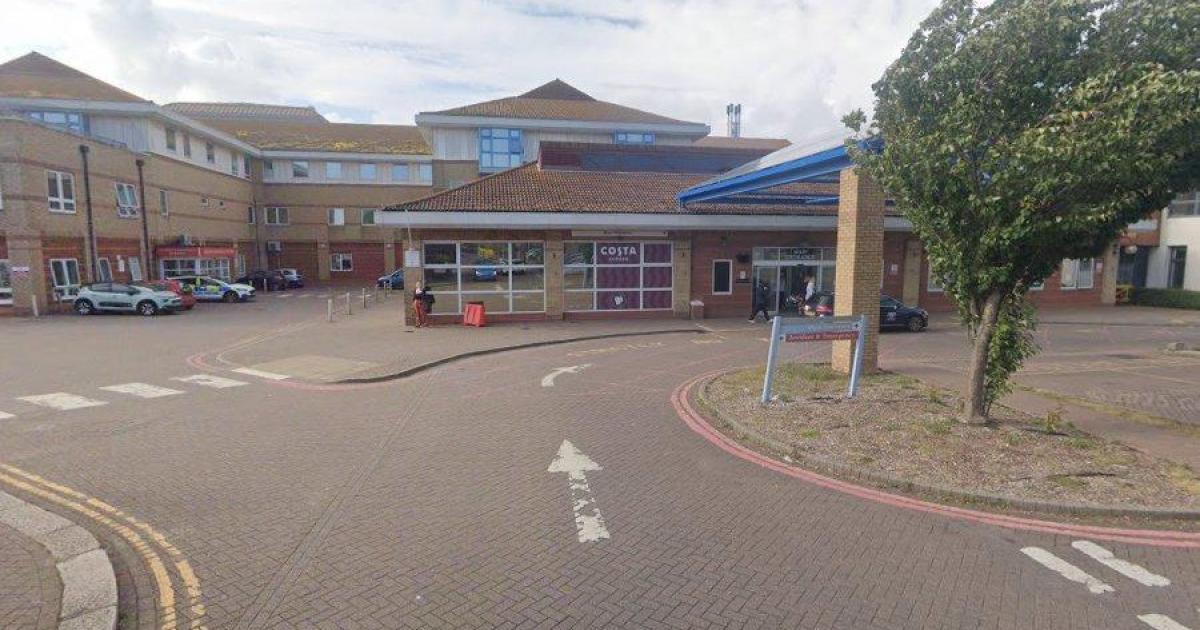Sarah Healey, 32, was admitted to Worthing Hospital with severe malnutrition and complex infections on May 4, 2024, after she had stopped eating and drinking for two weeks.
Ms Healey was treated for various serious conditions and was detained under the Mental Health Act until July 30, 2024.
On August 1, 2024, she became “extremely hypoxic” and died of respiratory failure, secondary to pleural effusions, caused by hypalbuminaemia and malnutrition, contributed to by a lack of physiological reserve.
Area coroner Joseph Turner said her medical issues came from Ms Healey’s avoidant restrictive food intake disorder, defined by the NHS as when someone avoids certain foods, limits how much they eat or does both.
Mr Turner said the disorder arose from her “longstanding mental health issues”, including generalised anxiety, PTSD and agoraphobia, related to “a series of abusive and violent incidents in her teens and other stresses”.
In a prevention of future deaths (PFD) report, Mr Turner said Ms Healey had not received appropriate or consistent mental health care between January 2022 and March 2024 and that this more than minimally contributed to her death.
Sussex Partnership NHS Foundation Trust apologised for this and the lack of support given to Ms Healey’s family and said it was “committed to ongoing improvements”.
The PFD stated that Ms Healey had lived a reclusive life, confining herself to her parent’s house since around the age of 20. It is believed she had autism since childhood, although it was not formally diagnosed.
She had followed an “extremely limited diet” for 12 years before her death, the report said, which led to malnutrition. She was referred to mental health services by her GP multiple times.
Mr Turner said her parents, her GP, the local mental health trust, private counselling services and the police had “some insight or knowledge” regarding Ms Healey’s mental health but none had “complete oversight or knowledge”.
The report said she could be “hard to reach” due to her difficulty in attending external appointments, linked to her agoraphobia and likely autism.
Ms Healey “had not been able to deal with her range of conditions”, while those supporting and treating her had not been able to give her “sufficient, consistent and applied” care.
During her inquest, it was admitted that she “had not received appropriate, consistent mental health care in the two years before she died”.
Historical matters relating to Ms Healey’s PTSD arose towards the end of 2023, leading to police involvement.
The report said the prospect of a criminal investigation “caused Sarah extreme anxiety and concern” and she stopped eating and drinking two weeks before she was taken to hospital.
Mr Turner said there should be “better information sharing and a wider, collaborative and joined-up approach” between mental health services and others, such as the GP, private counselling and social services, to improve care.
He added that policy, protocols and guidance should be developed to “to better safeguard mental health patients with accompanying physical health issues”.
The area coroner said that although he recognises the benefits of moving face-to-face appointments online, he is concerned they do not “work for all”.
He said: “Sarah’s case graphically demonstrated that there is no substitute for physically seeing a patient, especially when there are other conditions and lifestyle issues so clearly impacting on or resulting from her mental health, such that it seems that an agreed national approach and similar policy requirement may also further help to prevent future deaths of patients like Sarah.”
A spokesman for Sussex Partnership NHS Foundation Trust said: “We offer our sincere condolences to the family of Sarah Healey.
“We are sorry that Sarah did not receive appropriate, consistent community care and we also apologise for the lack of support provided to her family.
“We understand the coroner’s concerns about the need for a national approach to both information sharing between agencies and ensuring patients receive the most appropriate type of appointment, particularly for those with both mental and physical health issues.
“We are committed to the ongoing improvements we have already put in place and will further support the development and implementation of any national policy changes in this area.”
When life is difficult, Samaritans are here – day or night, 365 days a year. You can call them for free on 116 123, email them at jo@samaritans.org, or visit www.samaritans.org to find your nearest branch.

